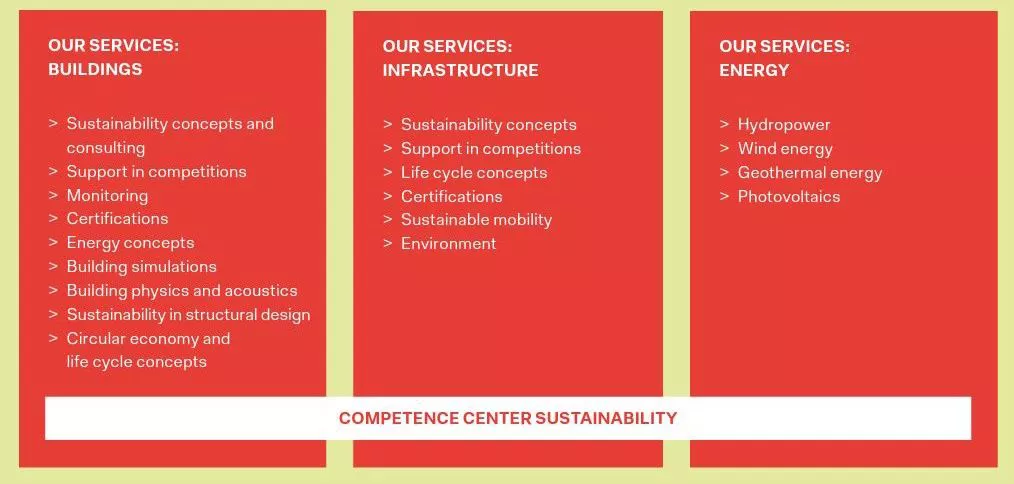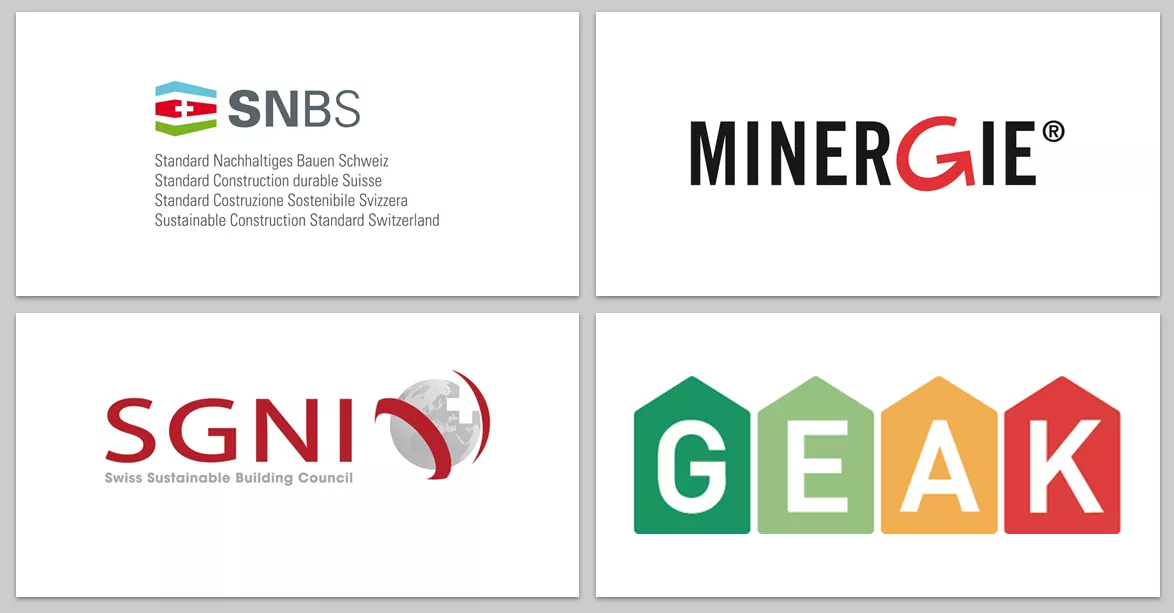Sustainability in infrastructure and building construction
The necessity of rethinking in planning and construction design
Approximately 40% of global CO2 emissions are caused by the construction, operation and demolition of buildings and infrastructure. In addition, the construction industry has a high consumption of non-renewable resources, which also affects energy production. It is therefore a driver of climate change.
Due to these facts, all companies involved in the construction process have a great responsibility. Their goal must be to minimise the influences on the climate crisis by
committing themselves to a rethink in the planning, construction and operation of buildings of all kinds and ensuring sustainable implementation.
To reduce the global carbon footprint of construction, we, the companies involved, must focus on innovative solutions that increase energy efficiency and promote the use of renewable resources. Building design should take into account factors such as climate change, urban population growth, resource usage and waste production. The integration of methods such as green roofs and walls to mitigate extreme weather events, conserve water resources and reduce air pollution should be considered as early as possible in the design phase. Furthermore, using materials such as recycled steel or wood derived from sustainable forestry practices can help decrease emissions associated with material extraction and processing.
The operational phase is another important factor when it comes to ensuring sustainability. Companies should prioritise investments in efficient heating/cooling systems, lighting fixtures and other infrastructure elements that lead to reduced energy consumption. Additionally, energy storage systems should be implemented to ensure that excess energy is stored for later use.
Finally, when it comes to demolition and waste management, companies need to take a proactive approach by finding ways of reusing or recycling materials instead of sending them off to landfills. Entities can also look into different methods such as deconstruction, which enables construction and demolition debris to be salvaged and put towards other projects.
Sustainable development in the construction industry is essential if we are to make serious efforts towards reducing global carbon emissions and combating climate change. By committing ourselves to green practices throughout the entire process - from planning and building through operational phases all the way up until demolition.
Gruner Sustainability Competence Center
In line with the Gruner vision of "Building and construction for a liveable future", we are implementing a large number of our projects in a sustainable manner. In doing so, we draw on our network of many specialist disciplines. In order to guarantee efficient and smooth project processing both internally and externally, we founded the "Sustainability Competence Centre" this year.
This is where our expertise in sustainable planning and construction and in the development of innovative and sustainable energy solutions flows together. In dialogue with each other and with our clients, we are committed to climate-neutral solutions and always consider the entire life cycle of a building, a site or an infrastructure facility. In addition to planning, construction and operation, we also focus on deconstruction and recycling.
Why Gruner?
One of the success factors of sustainable project management and support is the timely consideration of all relevant issues in the early planning phases. In this way, the social, ecological and economic risk is greatly reduced right at the start of a project and quality is optimised at the same time. Achieving the ambitious goals is possible because, in addition to professional support, Gruner guarantees team-oriented planning, interdisciplinary service provision and quality assurance that complies with laws and standards.
Excerpt of labels according to which we work in Switzerland:



